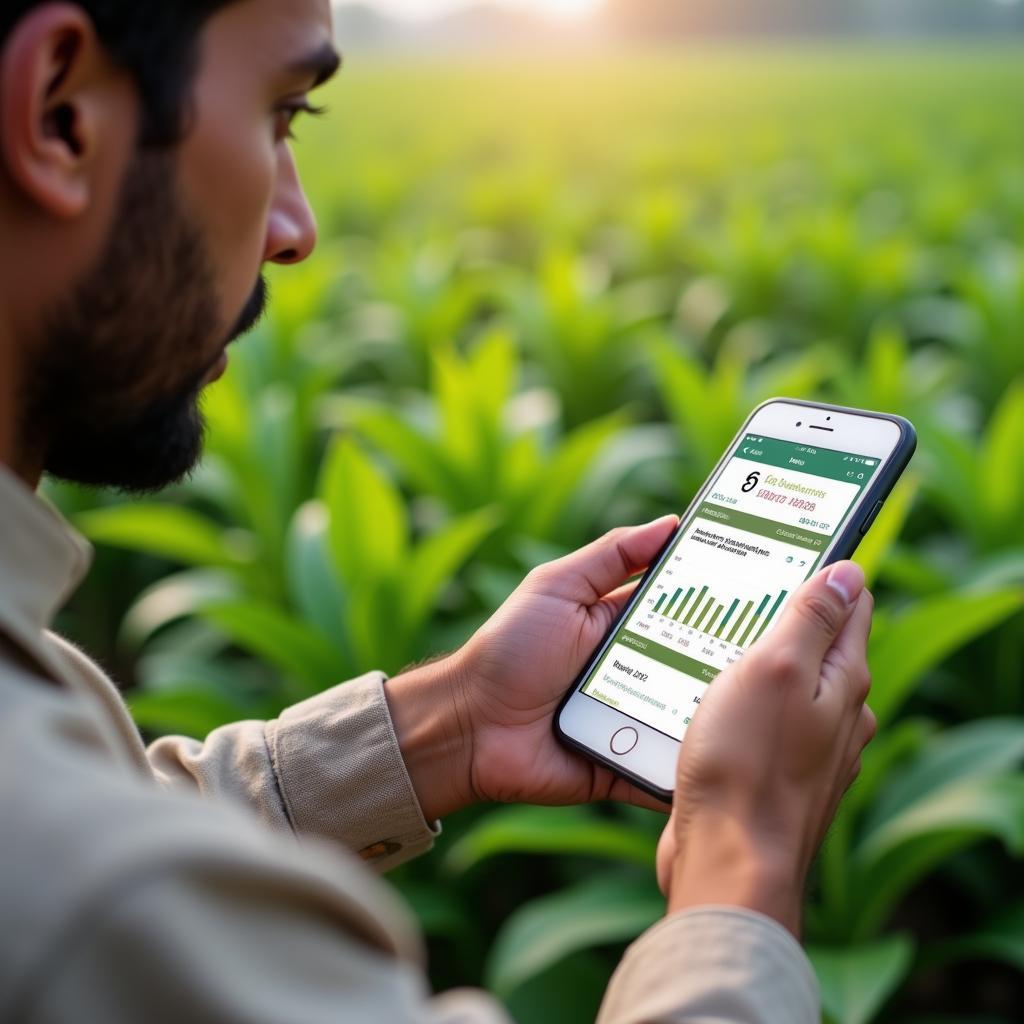Agriculture, the backbone of Pakistan’s economy, plays a pivotal role in the nation’s overall development. Employing nearly half of the country’s workforce and contributing significantly to the GDP, its importance cannot be overstated. This essay will delve into the multifaceted aspects of agriculture in Pakistan, exploring its challenges, opportunities, and the path towards a more sustainable and prosperous future.
The Significance of Agriculture in Pakistan
Pakistan is blessed with fertile land, diverse climatic conditions, and an extensive network of rivers, making it suitable for a wide range of crops. From the wheat fields of Punjab to the mango orchards of Sindh, the country produces a variety of agricultural products that contribute significantly to food security and export earnings.
Agriculture in Pakistan is not just an economic activity; it’s deeply intertwined with the cultural fabric of the nation. For generations, families have toiled on their land, cultivating crops that sustain the nation. This deep-rooted connection to the land is reflected in the traditions, festivals, and even the cuisine of Pakistan.
Challenges Facing the Agricultural Sector
Despite its importance, the agricultural sector in Pakistan faces numerous challenges that hinder its full potential. These challenges range from outdated farming practices and water scarcity to climate change and market volatility.
One of the most pressing issues is the lack of modern technology adoption. Many farmers still rely on traditional methods, leading to lower yields and inefficient use of resources. This is further exacerbated by limited access to credit and financial services, making it difficult for farmers to invest in modern equipment and technologies.
Water scarcity is another critical challenge. The Indus River, the lifeline of Pakistani agriculture, is facing increasing pressure due to population growth and industrialization. This has led to frequent droughts and water shortages, impacting crop production and farmer livelihoods.
Climate change poses a significant threat to agriculture in Pakistan. Extreme weather events such as floods and droughts are becoming more frequent, damaging crops and disrupting farming cycles. The rising temperatures and changing rainfall patterns also affect crop yields and increase the vulnerability of farmers to poverty.
Opportunities for Growth and Development
 Modern technology in Pakistani agriculture
Modern technology in Pakistani agriculture
Despite the challenges, the agricultural sector in Pakistan is ripe with opportunities for growth and development. By addressing the existing bottlenecks and embracing innovation, Pakistan can transform its agriculture into a modern and sustainable engine of economic growth.
Investing in agricultural research and development is crucial for developing climate-resilient crop varieties and improving farming practices. This will not only enhance productivity but also ensure food security in the face of climate change.
Improving access to finance and credit for farmers is essential to enable them to invest in modern technologies and inputs. This can be achieved through targeted government schemes, partnerships with private sector financial institutions, and promoting financial literacy among farmers.
Developing efficient irrigation systems and promoting water conservation techniques are vital to address the challenge of water scarcity. Investing in drip irrigation, rainwater harvesting, and other water-efficient technologies can significantly improve water use efficiency in agriculture.
Empowering farmers through education and training is crucial for them to adapt to the changing agricultural landscape. Providing farmers with the knowledge and skills to implement sustainable farming practices, manage risks, and access market information can significantly improve their livelihoods.
Embracing a Sustainable Future for Pakistani Agriculture
The future of agriculture in Pakistan hinges on its ability to embrace sustainability. This means adopting farming practices that are environmentally friendly, socially responsible, and economically viable in the long run.
Promoting organic farming, reducing the use of chemical fertilizers and pesticides, and adopting conservation tillage practices can minimize the environmental impact of agriculture. This will not only protect the environment but also enhance the quality of agricultural products.
Ensuring fair prices for farmers and improving their access to markets are crucial for their economic well-being. This can be achieved through strengthening farmer cooperatives, promoting contract farming, and establishing efficient value chains that benefit both farmers and consumers.
Addressing the challenges of agriculture in Pakistan requires a multi-pronged approach involving the government, private sector, and farmers themselves. By working together, Pakistan can unlock the true potential of its agriculture sector and pave the way for a more prosperous and sustainable future.
FAQs about Agriculture in Pakistan
What are the major crops grown in Pakistan?
Pakistan is a major producer of wheat, cotton, rice, sugarcane, and fruits like mangoes and citrus fruits.
How does climate change affect agriculture in Pakistan?
Climate change leads to more frequent extreme weather events like floods and droughts, impacting crop yields and increasing farmers’ vulnerability.
What are the government’s initiatives to support agriculture?
The government has introduced various schemes to provide subsidies on inputs, improve irrigation infrastructure, and offer credit facilities to farmers.
How can technology improve agriculture in Pakistan?
Technology can play a vital role in improving crop yields, optimizing water use, and connecting farmers to markets through digital platforms.
What is the future of agriculture in Pakistan?
The future lies in adopting sustainable farming practices, empowering farmers, and embracing innovation to ensure food security and economic growth.
For further information and support on agriculture-related matters, please contact us at:
Phone Number: +923337849799
Email: [email protected]
Address: Dera Ghazi Khan Rd, Rakhni, Barkhan, Balochistan, Pakistan
Our dedicated customer service team is available 24/7 to assist you. You can also find valuable resources on challenges of Pakistan, Pakistan Studies, and current affairs of Pakistan on our website. We encourage you to explore our articles on environmental issues and the water crisis in Pakistan to gain a deeper understanding of these crucial topics.